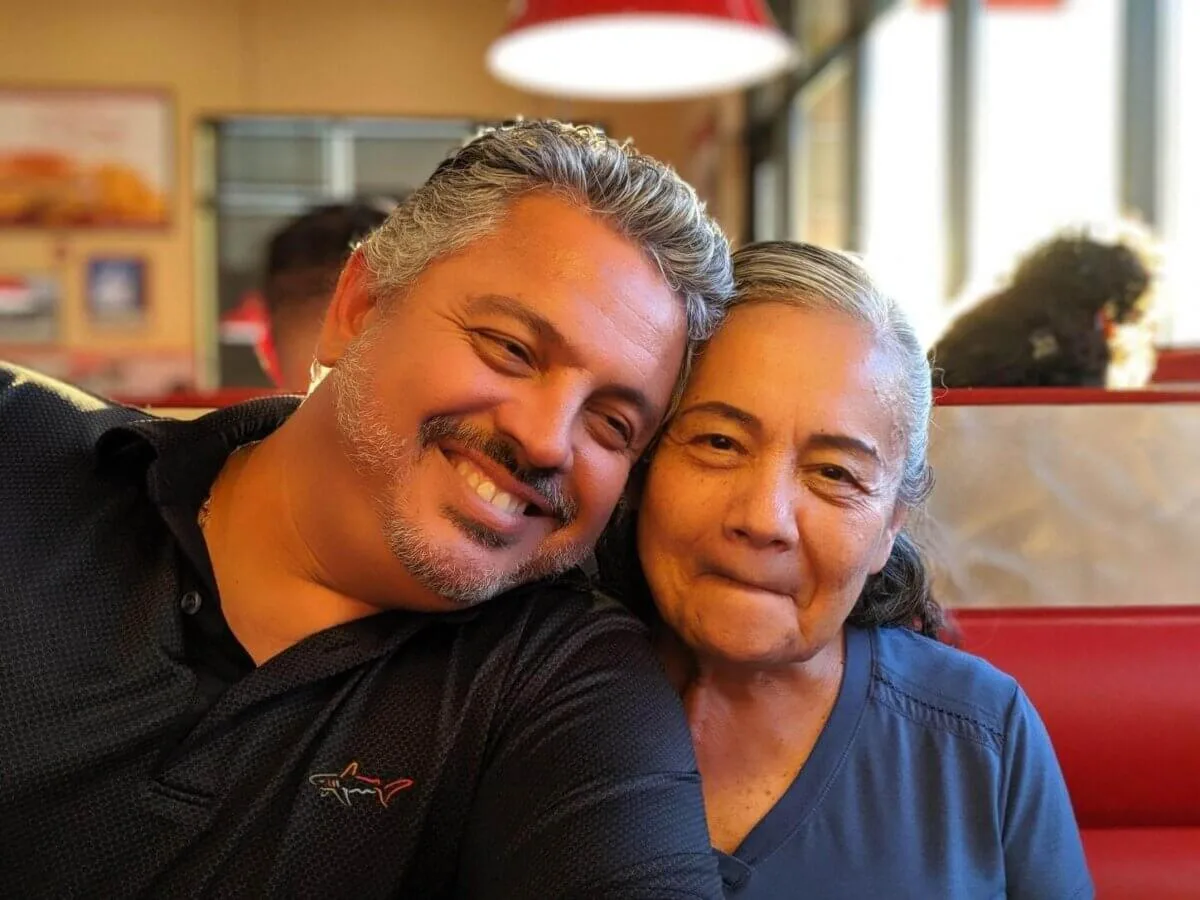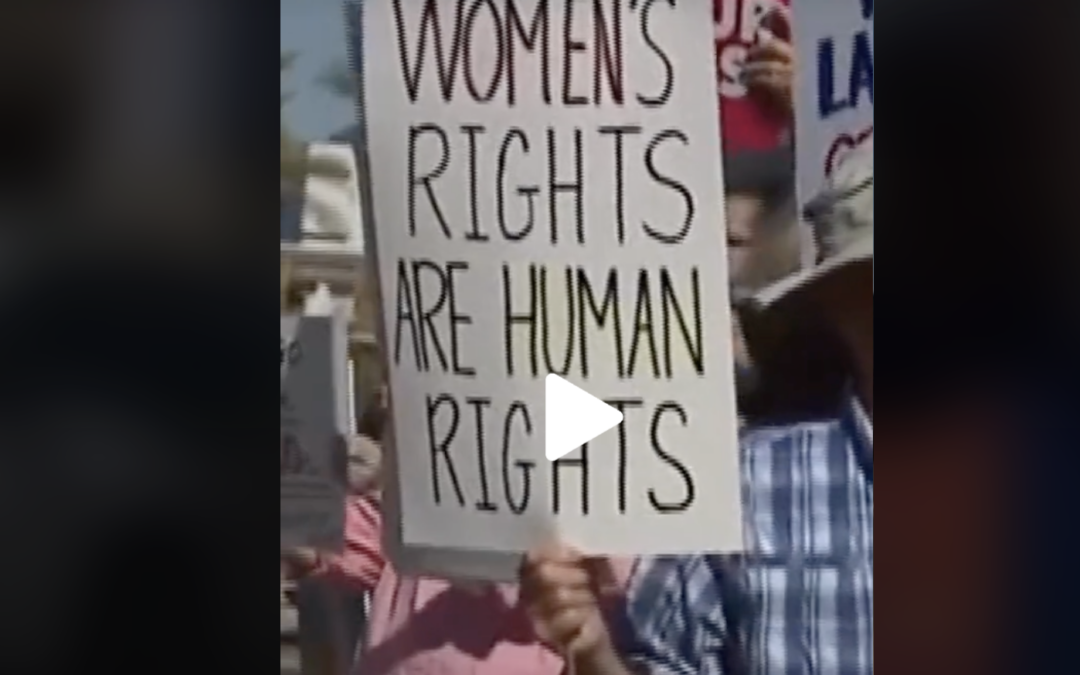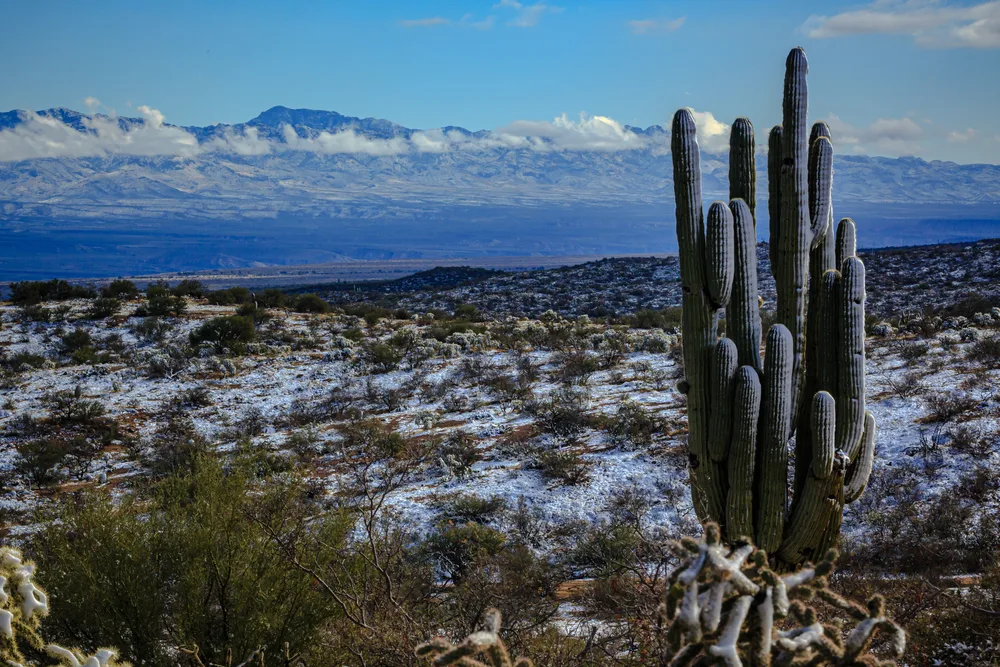
Dr. Ricky Ochoa and his mom (Photo courtesy of Ochoa)
A report from AARP Arizona found that the 850,000 family caregivers in the state provide $14.5 billion in unpaid labor caring for loved ones.
Dr. Ricky Ochoa of Yuma described his mom as “the strongest woman I’ve ever met.” She raised him and his brother, who has developmental disabilities, by herself.
Ochoa, medical director of the Agape Clinic, said his mother was a hard worker, always finding ways to make ends meet. She worked factory jobs, cleaned homes, resold clothing, and worked a nacho stand outside of their church. Despite all of the labor, Ochoa said, she always dressed up, did her hair, and wore nice jewelry.
“You knew my mom [when she] walked into the room,” Ochoa told The Copper Courier. “You recognized my mom when you saw her, confident and glowing all the time.”

That changed, Ochoa said, as she moved through her 60s. She started being anxious, crying, and saying she was depressed and confused. To make matters worse, his mother lived hundreds of miles away in West Covina, California.
“At the beginning … the rough part [was] trying to figure out what’s going on with her,” Ochoa said. “Is it dementia? Is it a psychiatric issue? In and out of the hospital, us making visits, it was taxing to say the least.”
Eventually, Ochoa’s mother was diagnosed with dementia and needed round-the-clock care, costing $100 to $200 a day when she was in the hospital. Ochoa, his aunt, and his mom’s friends pitched in to help take care of her once she was home, but they couldn’t afford to keep someone with her at all times or take off from their jobs to care for her themselves.
On top of that, Ochoa was in business school at the time while working a full-time job and caring for his four kids, who were in junior high and high school.
“We still had to work,” he said, “we still had to attend to our personal, to our families. So it was hard to always have somebody there.”
Sometimes they had to ask neighbors to check in on her or leave work early to go be with her.
“That presence at work or that presence as a dad or as a husband or as a wife, we remove ourselves from that,” Ochoa said. “And that cost is sometimes financial and sometimes it’s emotional, it’s physical.”
The Caregiving Crisis
Ochoa and his family are one of many in Arizona and across the US who have struggled to afford care for loved ones.
A report from AARP Arizona found that the 850,000 family caregivers in the state provide $14.5 billion in unpaid labor caring for loved ones—a $3.9 billion increase since the last report in 2019.
“Family caregivers play a vital role in Arizona’s health care system, whether they care for someone at home, coordinate home health care, or help care for someone who lives in a nursing home,” Dana Marie Kennedy, AARP Arizona state director, said in a press release. “We want to make sure all family caregivers have the financial, emotional and social support they need because the care they provide is invaluable both to those receiving it and to their community.”
RELATED: An Arizona Home Care Worker Speaks on the Dark Side of the Profession
Ochoa decided in 2017 to move his mom back with him to Arizona to a private care facility that cost over $3,500 per month. Her Social Security payments went toward the cost while the family supplemented the rest.
“That gave us some relief so … when we did spend time with her, it was quality time,” Ochoa said. “It wasn’t worrying about who’s going to change her, who’s going to bathe her, who’s going to take care of her.”
That time together turned out to be precious: His mom died last year at age 69.
Support for Caregiving Is Out There
There are some resources available for those who find themselves needing to care for loved ones. A few years ago, the Arizona Legislature passed the Arizona Family Caregiver Reimbursement Program, which allows family caregivers to be reimbursed 50% for home modifications and up to $1,000 per qualifying family member for assistive care technology.
Some caregivers may even qualify for the state’s respite programs, or short-term care that allows primary caregivers a break. The Arizona Department of Economic Security also offers a resource hotline at 888-737-7494 where callers can talk with a trained volunteer about their needs.
After spending years caring for his mother, Ochoa wants to raise awareness about the struggle of caregiving, especially for loved ones with dementia and Alzheimer’s. He recommended seeking out Facebook and other support groups to remind caregivers in this situation that they are not alone.
“Everyone I think goes through this point in this process where they feel like they’re the only ones going through this,” he said. “And we’re not.”
Looking for the latest Arizona news? Sign up for our FREE daily newsletter.
Politics

Trump says he’s pro-worker. His record says otherwise.
During his time on the campaign trail, Donald Trump has sought to refashion his record and image as being a pro-worker candidate—one that wants to...

VIDEO: Hundreds show up in Scottsdale to support reproductive rights
@coppercourier Days after the Arizona Supreme Court ruled to enforce a long-dormant law that bans nearly all abortions, hundreds took part in a...
Local News

US court rejects a request by tribes to block $10B energy transmission project in Arizona
In Arizona, work was halted briefly in November amid pleas by tribes to review environmental approvals for the San Pedro Valley. ALBUQUERQUE, N.M....

What to know about Trump’s legal issues
Over the past year, former president Donald Trump has become the center of not one, not two, not three, but four criminal investigations, at both...





